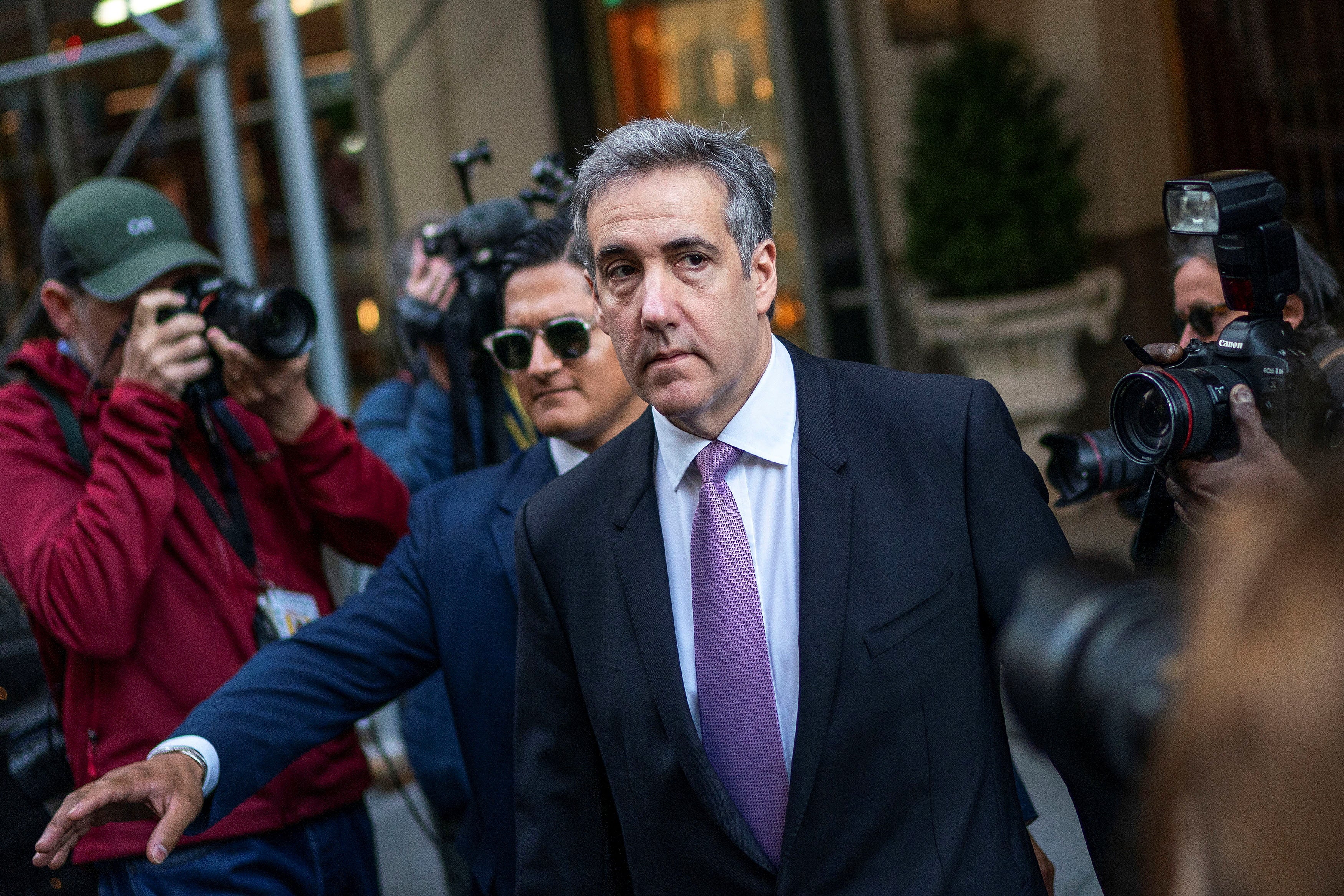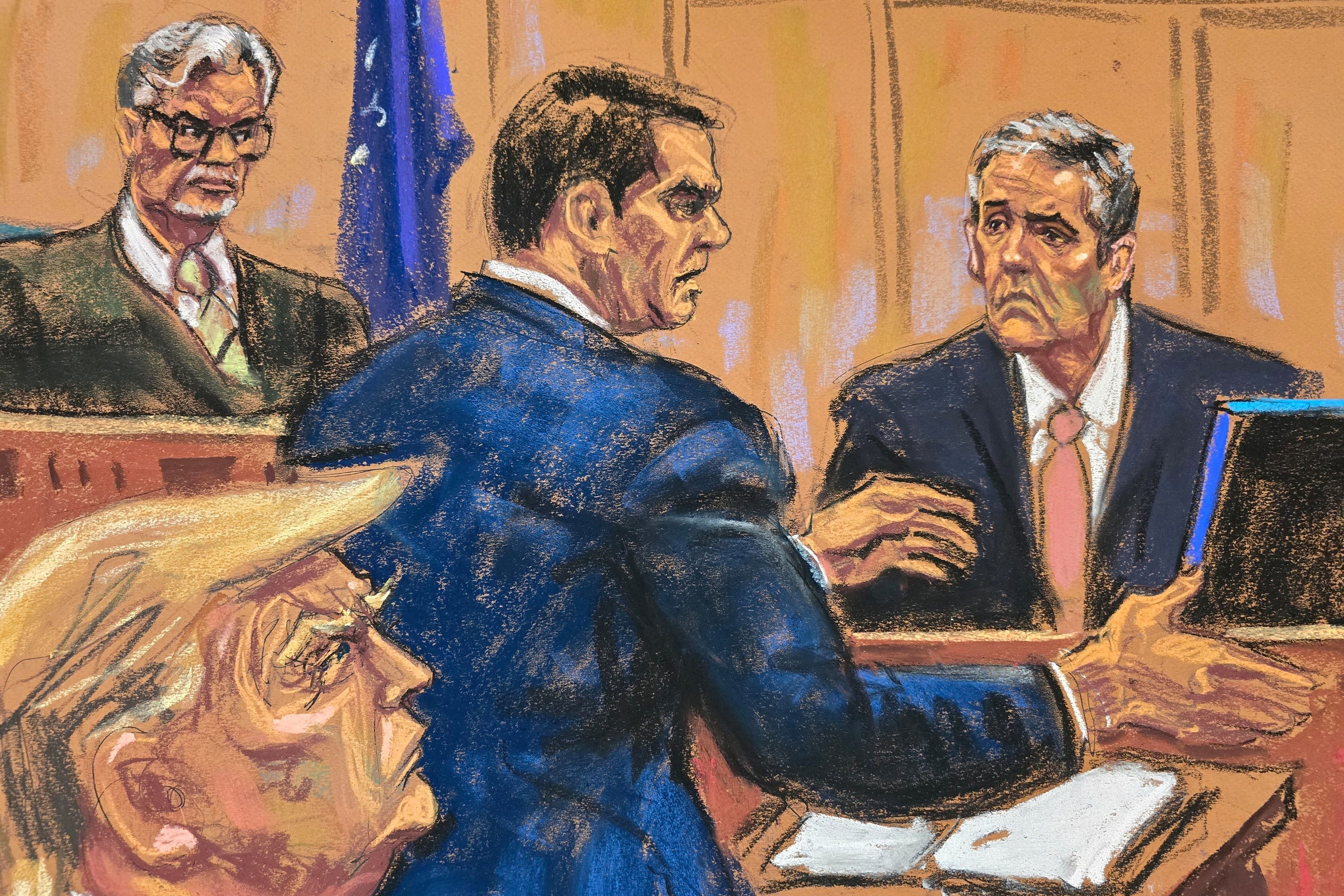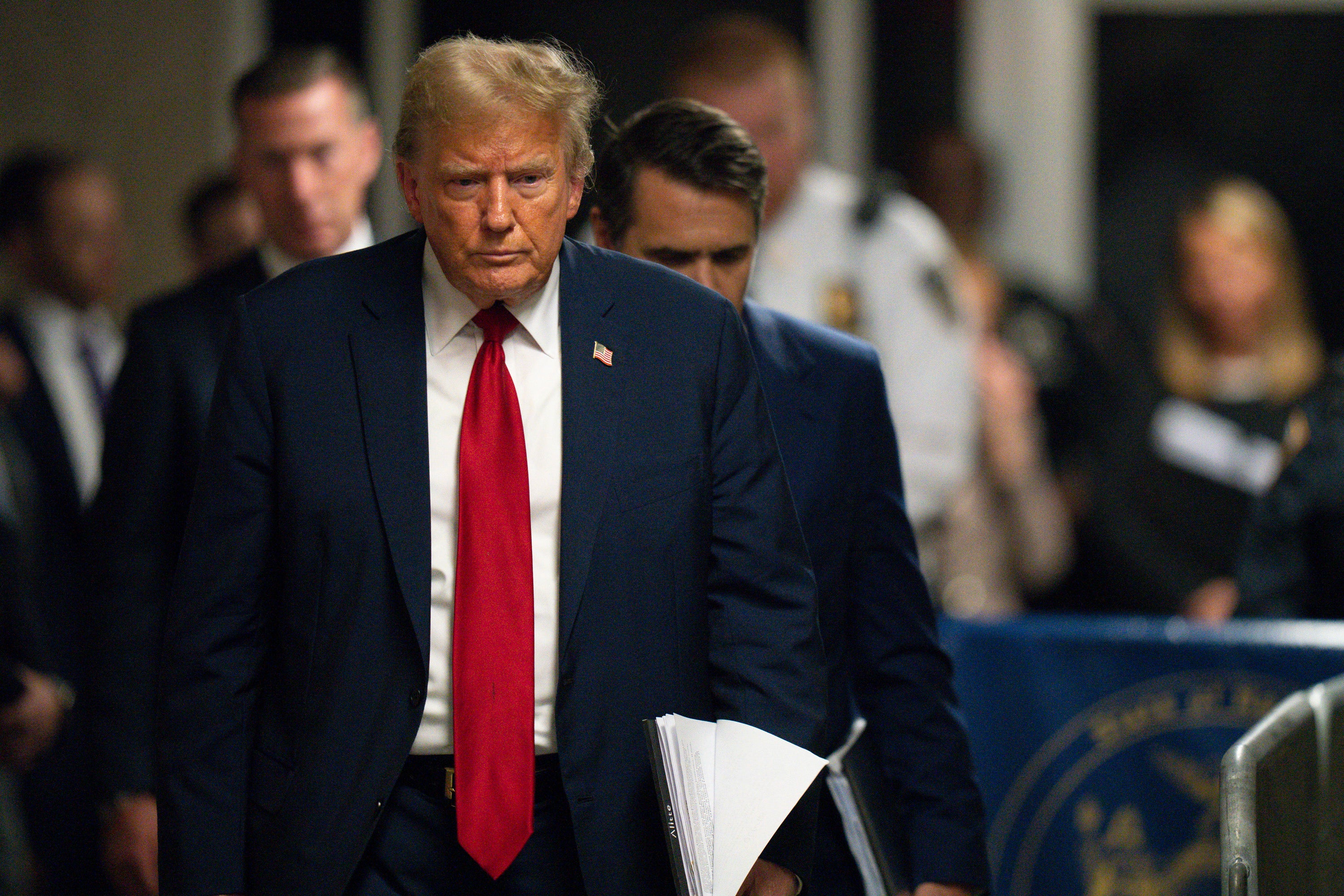The credibility of a convicted liar could determine Trump’s fate
It’s bad news for Trump if jurors take Michael Cohen at his word, Alex Woodward writes from New York


Your support helps us to tell the story
From reproductive rights to climate change to Big Tech, The Independent is on the ground when the story is developing. Whether it's investigating the financials of Elon Musk's pro-Trump PAC or producing our latest documentary, 'The A Word', which shines a light on the American women fighting for reproductive rights, we know how important it is to parse out the facts from the messaging.
At such a critical moment in US history, we need reporters on the ground. Your donation allows us to keep sending journalists to speak to both sides of the story.
The Independent is trusted by Americans across the entire political spectrum. And unlike many other quality news outlets, we choose not to lock Americans out of our reporting and analysis with paywalls. We believe quality journalism should be available to everyone, paid for by those who can afford it.
Your support makes all the difference.Handle it.”
“Make sure it doesn’t get released.”
“Just do it.”
During Donald Trump’s hush money trial, Michael Cohen did what the 19 other prosecution witnesses could not: directly tie the former president to the $130,000 payment to Stormy Daniels that is at the heart of the criminal case against him. But will jurors buy his story?
No single person was closer to Mr Trump’s alleged scheme to corruptly influence the 2016 presidential election than his one-time “fixer,” who abandoned his position as the pugilistic “consigliere” for a more civic-minded — and lucrative — role as Mr Trump’s chief antagonist.
Cohen openly loathes Mr Trump. He at least partially blames him for his prison sentence for crimes tied to the New York case. He admitted in court to calling Mr Trump a “boorish cartoon misogynist” and “Cheeto-dusted” villain. Jurors heard clips from Cohen’s podcast screaming that “revenge is a dish best served cold.”
Defense attorneys depicted Cohen as a disgruntled, selfish and fame-hungry opportunist. He was furious with a lower-than-usual bonus check, so he stole from Mr Trump’s company, and then flipped against him when federal prosecutors snooped around his home and office, eventually turning the newfound attention into a multimillion-dollar business that revolves around trashing his old boss.
But on the witness stand in the Republican presidential nominee’s criminal trial in Manhattan, Cohen — his eyes wide and sunken, his hair graying and his Long Island accent softened — admitted to and directly confronted his history of lies, convictions and shameful behavior that compromised his freedom and family.

Over four days, he walked jurors through dozens of pieces of evidence, including the allegedly falsified business records that relate to each of the 34 counts against Mr Trump — and that have Cohen’s name stamped all over them.
In his testimony, Mr Trump’s former attorney explained that his boss told him to “handle” hush money payments and nondisclosure agreements that would keep his campaign-crushing sex scandals out of the press before Election Day in 2016.
When it came to covering up an adult film star’s story about her alleged sexual encounter with Mr Trump for $130,000, Mr Trump allegedly told Cohen: “Just do it.”
Less than two weeks before Election Day, Cohen finalized a contract and wired her attorney the cash. Then, he told Mr Trump that the deal was done. A satisfied president-elect Trump then approved a payment plan to reimburse his attorney before heading to Washington DC, where he signed the checks from the Oval Office, Cohen said.
“What I was doing,” Cohen testified, “was at the direction of and benefit of Mr Trump.”
His entire life “has been turned upside down as a direct result,” he said during his final moments on the witness stand. “I lost my law licenses, my business, my financial security … My family’s happiness is paramount.”
Cohen’s testimony was corroborated with 11 signed checks — most of which include Mr Trump’s Sharpie-inked signature — stapled to Cohen’s invoices, and 12 ledger entries that mark Cohen’s payments as a “legal expense” pursuant to a “retainer” that even Mr Trump’s defense attorneys admit never existed. Prosecutors used emails, text messages, call logs, encrypted chats and even surreptitiously recorded conversations with Mr Trump himself to carefully lay out the scheme.
Defense attorney Todd Blanche repeatedly reminded Cohen of his past praise for the former president — how he admired him “tremendously,” called The Art of the Deal a “masterpiece,” and insisted he’d take a bullet for him.
“At the time, you weren’t lying, right?” Mr Blanche asked him.
“At that time, I was knee-deep into the cult of Donald Trump, yes,” Cohen said.
“I was not lying,” he added. “It’s how I felt.”

When jurors begin deliberations this month, they don’t have to believe all the details of Cohen’s life story. His past lies and shady behavior don’t make the evidence against Mr Trump any less admissible.
Cohen’s testimony gave jurors the connective tissue for the prosecution’s narrative: Mr Trump warned Cohen to “be prepared” for stories about women when he launched his 2016 campaign, instructed him to pay them off, then signed the checks that reimbursed him, all as part of a plan drawn up by his accountants and finalized from the White House.
But the now-disbarred attorney has been keenly aware of the power of the information in his possession and has admitted to using it to his advantage.
During the first day of cross-examination, he admitted that he asked about the benefits of meeting with Manhattan prosecutors about this case while he was locked up in federal prison.
He also admitted that he has a financial interest in the outcome of the case — not necessarily if he’s convicted, but because Mr Trump is a constant source of subject matter for his podcasts and TikTok account.
It would actually be better if Mr Trump is not convicted, he said, “because it gives me more to talk about in the future.”